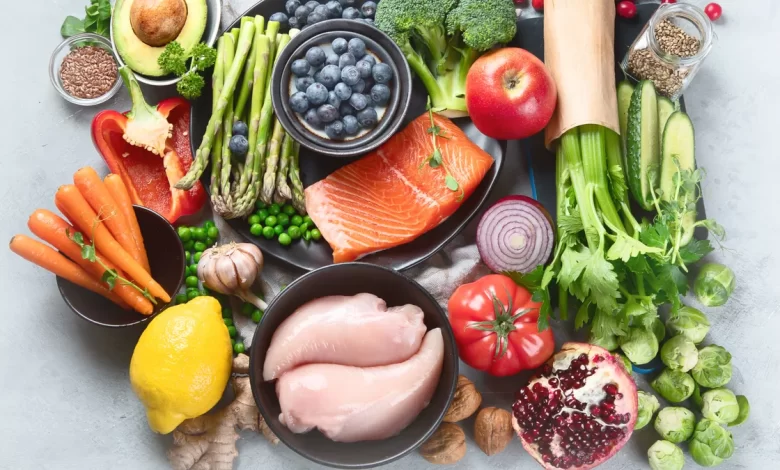What are the preferred foods for lowering cholesterol? Advice from an expert

Excess cholesterol is a public health issue. According to Santé Publique France, nearly one in five French people have high cholesterol levels, i.e. high levels of LDL-cholesterol. But what is cholesterol? How can diet affect its presence? What are the daily dietary habits to adopt to lower (bad) cholesterol? Pharmacist and naturopath Nathalie Ballesteros enlightens us on these topics.
HDL and LDL cholesterol: What is the right cholesterol?
‘Cholesterol is divided into two categories, LDL cholesterol, which is the bad cholesterol, and HDL cholesterol, which is the good cholesterol,’ says Ballesteros. When the level of LDL cholesterol in the blood is too high, it builds up and settles on the walls of the arteries, increasing the risk of developing cardiovascular disease. This is called hypercholesterolemia.
In addition, this excess of cholesterol in the blood can lead to a long-term myocardial infarction, a stroke or arteritis of the lower limbs. In France, one in two heart attacks is thought to be caused by cholesterol.
High cholesterol: What role does diet play?
“The role of dietary cholesterol is not as inherent as one might think,” Ballesteros says. When doctors are treating a patient with high cholesterol, regardless of cardiovascular risk, “the first steps are dietary hygiene measures, changing a patient’s behaviors around nutrition and lifestyle.”
According to the naturopath, cholesterol in our body comes from only 25% of our diet. Three quarters of the cholesterol comes from endogenous cholesterol, the cholesterol that the body makes, which is caused by liver dysfunction. Experts estimate that dieting lowers LDL cholesterol levels from 5% to 7%. “The impact on cholesterol, via diet, is therefore moderate compared to liver dysfunction,” says Ballesteros.
However, the contents of the plate remain fundamental to limit the occurrence of bad cholesterol.
What dietary habits to reduce cholesterol?
Ballesteros advises using chrono-nutrition, as it was created by Dr. Delabos. According to this regime, it would be: “morning to eat like a king, noon like a prince, and evening like a lover.” You should prefer a rich breakfast, with good fats, good proteins, at noon favor a balanced meal and in the evening turn to a light meal.
“The opposite is often done in our habits,” she says, “in the morning, we don’t always have time to take more than a hot drink,” says the naturopath. “At noon, it’s a sandwich on the go and in the evening, we make up for it with a more copious meal. All this has a negative impact on cholesterol levels and the body.’
How can you lower your cholesterol?
“It is important to have a healthy lifestyle, with a minimum of physical activity and quality sleep,” says the naturopath. She says that the Mediterranean diet ‘has shown its interest in combating cholesterol and reducing cardiovascular risks’.
For fruit juices, the specialist advises making them homemade using a centrifuge. “The advantage over a traditional juice is that you get the fiber back, and the fiber is lost in a ‘classic’ juice.
What foods to lower cholesterol?
To set up the Mediterranean diet, here are the advice of the naturopath:
fruits and vegetables rich in antioxidants (often green or red/orange);
fatty fish such as salmon and sardines;
lean meat such as poultry;
oilseeds such as nuts or hazelnuts.
What are some foods to avoid when you have cholesterol?
However, to implement the Mediterranean diet, you must avoid these foods, according to the specialist:
red meat;
delicatessen;
ultra-processed foods;
salt because it is related to high blood pressure, which is part of the cardiovascular risk.
Anti-cholesterol diet: typical one-day meals:
To help you set up a diet to lower bad cholesterol, here is a typical meal program developed by the specialist:
Cholesterol: What to eat in the morning?
green tea for its antioxidant properties;
centrifuged fruit juice such as orange, kiwi or apples;
a handful of unroasted, unsalted oilseeds;
an avocado on a toast of whole bread with a slice of white ham;
bread with whole grains
a small piece of sheep’s cheese.
For lunch, take:
a red or orange vegetable because it is rich in fiber, vitamin C and antioxidants;
lean meat or fish;
a large plate of vegetables (cabbage, pepper);
a starch.
Snacks:
a handful of unsalted and unroasted oilseeds (nuts, hazelnuts, etc.).
For dinner, take:
a light meal, with vegetable soup that is rather green and red, foods rich in antioxidant, and vitamin C. For dessert you can turn to a homemade compote.
Anti-cholesterol drink?
Recommended beverages to lower cholesterol include the following:
Green tea;
a homemade fruit juice.
Cholesterol: How long after a change in diet has taken to occur is the effect visible?
According to the specialist, the first results will be visible after 4 to 6 weeks. However, the effects have to be nuanced. The goal is therefore to adopt a healthy and balanced lifestyle.












